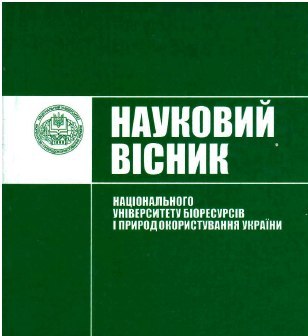Illness As Result Of Interaction Between Person And Society In David Lodge’s Novels Of The End Of XХ – The Beginning Of The XХІ Century
DOI:
https://doi.org/10.31548/philolog0(263).2017.0157%20-%20165Abstract
Scientific theories as well as fiction of the late 20th century show special attention to the problem of representation of ill and deviant bodies. In modernist texts body was a repository for I-consciousness and controversial desires, but in postmodernist fiction it is mostly regarded as performative and virtual. Ill body is often considered to be deviant while health is associated with moral performance.
The common feature of D. Lodge’s novels taken into consideration is their peculiar interest in such body and sociocultural experiences as ageing and illness.
The purpose of the paper is to explore the relations between ill individual and sociocultural situation depicted in the texts.
Traditional academic methods of literary studies have been combined with strategies of such interdisciplinary branches as sociology, body theory and disability studies.
Results. Drawing upon the novels Therapy, Thinks…, Author, Author, Deaf Sentence and A Man of Parts it is argued that there exists a set of diseases (cancer, deafness, blindness, depression, chronic pain, autism, Alzheimer’s, Down syndrome) that should be regarded as “narrative prosthesis” of the author’s texts. On the one hand, the ambivalent nature of these diseases brings out the estrangement of ill person who is often marginalized in society. On the other hand, illness becomes the common bond that joins ill person and society in their shared vulnerability. In D. Lodge’s novels illness often functions as a metaphor of social, cultural, political or moral collapse.
Originality. Despite the great number of works exploring D. Lodges earlier texts, the functions of ill body in his novels have never been the focus of special academic research.
Conclusion. D. Lodge’s five latest novels show at least three main aspects of illness. Firstly, it is represented as physical display of body transgression. Secondly, illness often becomes a metaphor of social and political situation or definite epoch. Thirdly, it can be regarded as cultural phenomenon which has special symbolic meaning.
Further analysis of functions of ill body in literary texts can not only help to define the idiostylistic dominants in works of classic and contemporary authors, but also to relieve the pressure of the negative metaphorReferences
Бодрийяр Ж. Общество потребления [Текст] / Ж. Бодрийяр. – М. : Республика, 2006. – 179 с.
Гундорова Т. Симптоматика «хворого тіла» [Текст] / Т. Гундорова // Критика. – Число 7–8 (№ 153–154 ). – К., 2010. – С. 24–26.
Грааф Дж. де. Потреблятсво: Болезнь, угрожающая миру [Текст] / Дж. Де Грааф, Д. Ванн, Т. X. Нэйлор. – Екатеринбург: Ультра. Культура, 2005. – 392 с.
Зонтаґ С. Хвороба як метафора. Снід та його метафори [Текст] / С. Зонтаґ. – К.: Видавництво Жупанського, 2012. – 162 с.
Фромм Э. По ту сторону порабощающих нас иллюзий: Как я столкнулся с Марксом и Фрейдом. Дзен-буддизм и психоанализ [Текст] / Э. Фромм. – Москва : АСТ, 2010. – 320 с.
Eagleton T. After Theory / T. Eagleton. – NY. : Basic Books, 2003. – P.186.
Frank A. W. The Wounded Storyteller : Body, Illness, and Ethics / A. W. Frank. – Chicago : University of Chicago Press, 1995. – 231 p.
Lodge D. A Man of Parts / D. Lodge. – NY : Penguin, 2011. – 436 p.
Lodge D. Author, Author / D. Lodge. – London : Secker and Warburg, 2004. – 389 p.
Lodge D. Consciousness and the Novel : Connected Essays / D. Lodge. – Cambridge, Massachusetts : Harvard University Press, 2002. – 320 p.
Lodge D. Deaf Sentence / D. Lodge. – NY : Penguin, 2009. – 304 p.
Lodge D. Therapy / D. Lodge. – NY : Penguin, 1996. – 336 p.
Mitchell D. T. Narrative Prosthesis : Disability and the Dependencies of Discourse / D. T. Mitchell, Sh. L. Snyder. – Ann Arbor : University of Michigan Press, 2000. – 228 p.
Downloads
Published
Issue
Section
License
Relationship between right holders and users shall be governed by the terms of the license Creative Commons Attribution – non-commercial – Distribution On Same Conditions 4.0 international (CC BY-NC-SA 4.0):https://creativecommons.org/licenses/by-nc-sa/4.0/deed.uk
Authors who publish with this journal agree to the following terms:
- Authors retain copyright and grant the journal right of first publication with the work simultaneously licensed under a Creative Commons Attribution License that allows others to share the work with an acknowledgement of the work's authorship and initial publication in this journal.
- Authors are able to enter into separate, additional contractual arrangements for the non-exclusive distribution of the journal's published version of the work (e.g., post it to an institutional repository or publish it in a book), with an acknowledgement of its initial publication in this journal.
- Authors are permitted and encouraged to post their work online (e.g., in institutional repositories or on their website) prior to and during the submission process, as it can lead to productive exchanges, as well as earlier and greater citation of published work (See The Effect of Open Access).

